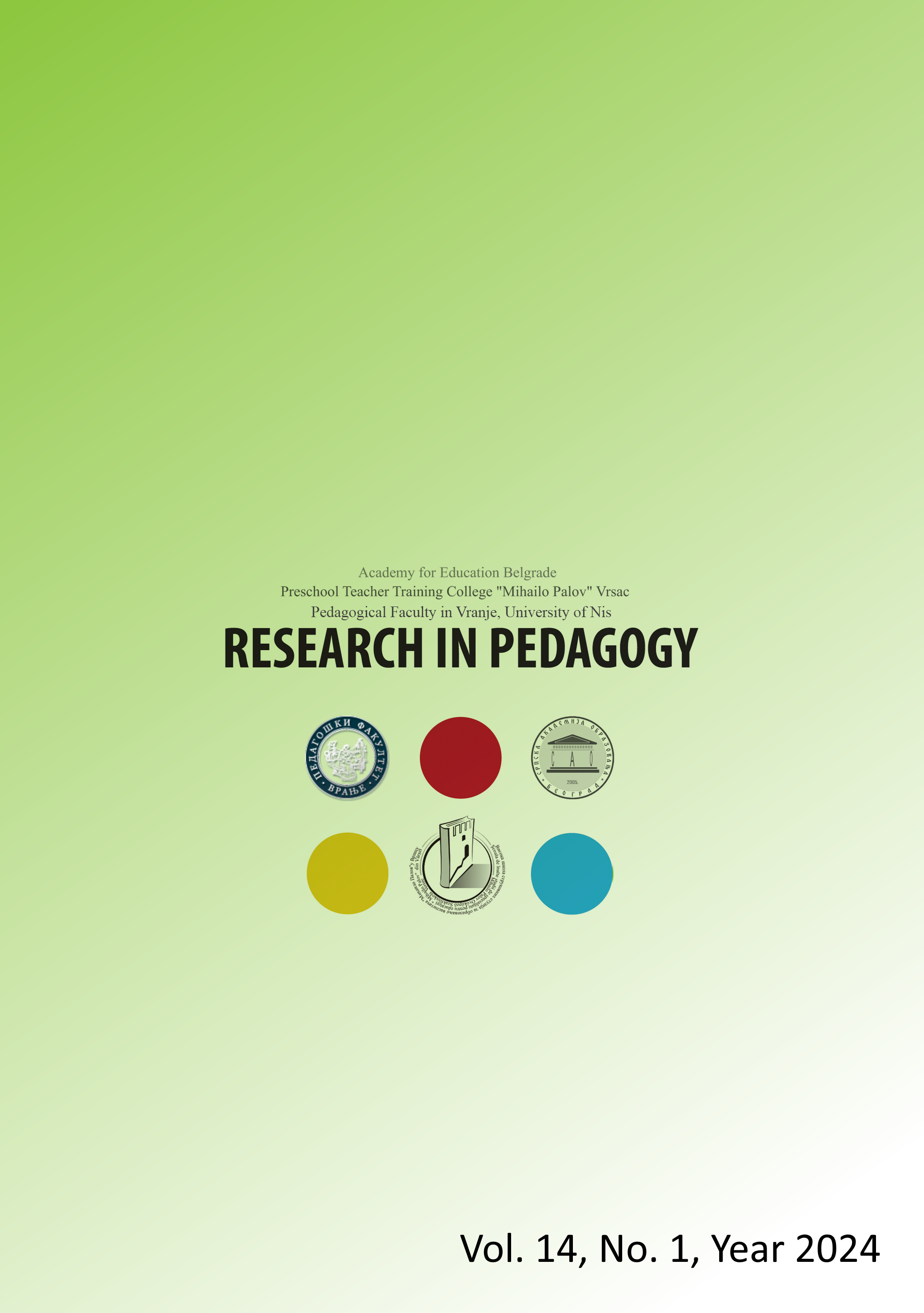AN INVESTIGATION OF THE RELATIONSHIP BETWEEN MOTHERS' PERCEIVED GENDER ROLE AND MATERNAL GATEKEEPING BEHAVIOR
AN INVESTIGATION OF THE RELATIONSHIP BETWEEN MOTHERS' PERCEIVED GENDER ROLE AND MATERNAL GATEKEEPING BEHAVIOR
Author(s): Kübra Nur Akdan, Mehmet KanakSubject(s): Social Sciences, Gender Studies, Sociology
Published by: Visoka škola strukovnih studija za vaspitače "Mihailo Palov"
Keywords: Gender role; Gender; Maternal Gatekeeping; Preschool period; Parent
Summary/Abstract: Objective: The purpose of this study is to examine whether there is a significant relationship between mothers' perceived gender role and maternal gatekeeping behaviors.Method: In this study, in which mothers' perceived gender role and maternal gatekeeping behaviors were examined according to some variables, the relational survey model, which obtains information through comparison from quantitative research methods, was used. The study group of the research consists of 606 mothers with preschool children who were selected by simple random sampling method from many cities in Turkey. "Personal Information Form", "Bem Gender Role Inventory" and "Maternal Gatekeeping Scale" were used to collect the data. Findings: There is a significant positive correlation between the participants' femininity scores and Two-Fold Responsible Maternity (TFM), Over-Committed Maternity (OCM) and Traditional Maternity (TM) scores at a moderate level, and a significant positive correlation with the scores belonging to all of Maternity Gatekeeping at a low level. Masculinity scores have a significant negative correlation with OCM and TM scores at a moderate level, and a significant negative correlation with the scores belonging to the entire TFM and Maternal Gatekeeping Scale (MG) a low level. As a result of the tests conducted in the sub-dimensions of the study, while there was a difference between the TFM, OCM, TM and MG scores of the mothers according to their educational status, age, place of residence and socioeconomic level; there was no difference between the Modern Maternity (MM) and Indirect Maternity (IM) scores according to their educational status, age, place of residence and socioeconomic level. While there was a statistically significant difference between child gender and OCM scores, there was no difference between the scores obtained from MM, TFM , TM, and Indirect Maternity (IM) sub-dimensions.Conclusion: As a result of the analyses, a significant positive relationship was found between the gender roles of the study group and maternal gatekeeping behaviors. There were positive and negative significant relationships between the gender roles of the study group and maternity gatekeeping behaviors in sub-dimensions. According to these results, as the femininity scores of mothers with preschool children increased, their total maternal gatekeeping scores increased, and as their masculinity scores increased, their total maternal gatekeeping scores decreased.
Journal: Research in Pedagogy
- Issue Year: 14/2024
- Issue No: 1
- Page Range: 180-197
- Page Count: 18
- Language: English

